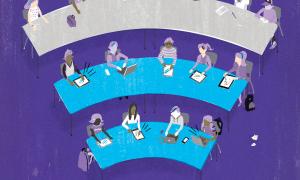article
Thanks to the “Singular ‘They’”

Activists and allies from a variety of identity groups work hard to dismantle exclusionary conceptions of gender. In the classroom, teachers have an opportunity to extend this work, one sentence at a time.
